Chlorella Vs Spirulina: Nutrition, Benefits, And Side Effects
Powerful and nutritious green supplements that improve your heart health and more.
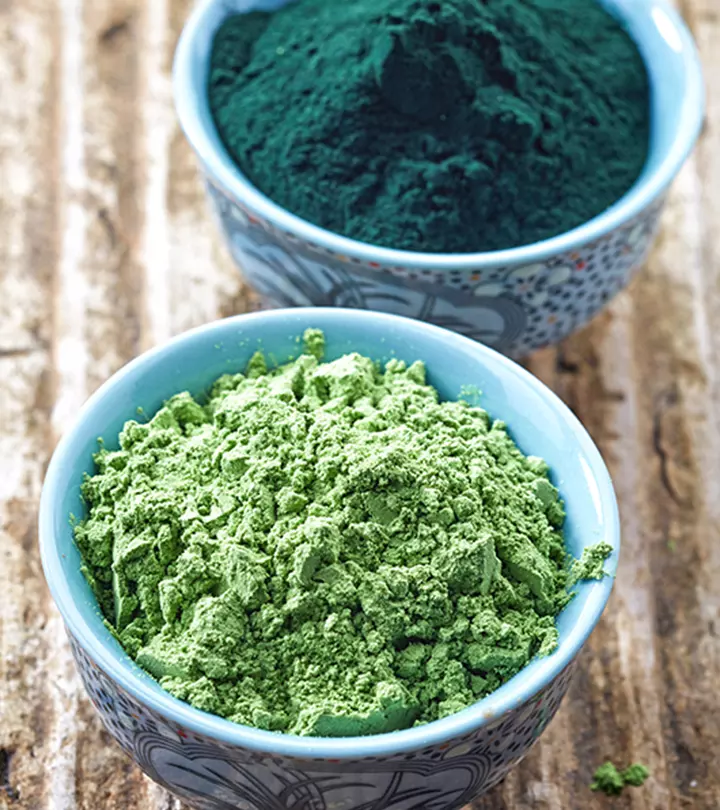
Image: Shutterstock
Most people are looking for healthier eating options today, thanks to the increasing awareness about health. This has paved the way for an interesting debate on the efficacy of chlorella and spirulina. These are algae-based supplements rich in nutrients and proteins that can be a healthy addition to your diet. These similar-looking supplements have gained popularity and share similar nutritional profiles. However, they are different in certain ways. Scroll down to learn more about the differences between these two ingredients, their nutrition profiles, benefits, and risks, and how to include them in your diet.
In This Article
What Are Chlorella And Spirulina?
Chlorella is a nutrient-dense, bright green, round algae with high chlorophyll content.
This single-celled, freshwater algae is a nutritional supplement available as powder, capsule, and extract. It has an impressive nutritional profile with many incredible health benefits.
Spirulina is a blue-green, spiral algae that grows in both fresh- and saltwater. This multicellular algae is known for its rich nutritional profile and intense flavor. It is a low-calorie and high-protein supplement with anti-inflammatory and antioxidant properties. The benefits of spirulina are numerous, making it a popular choice among health enthusiasts.
 Did You Know?
Did You Know?What are the differences between these two popular and similar-looking algae? Scroll down to learn more in the next section.
Key Takeaways
- Both chlorella and spirulina are popular, nutrient-dense algae supplements that may help lower LDL cholesterol and blood sugar levels.
- They can be added to your smoothies, salads, and soups.
- People with autoimmune disorders and on blood thinners should avoid consuming them.
Differences Between Chlorella And Spirulina
Chlorella and spirulina are the most popular algae supplements available on the market today.
While they provide similar health benefits and share identical nutrient profiles, they also are different from one another.
Chlorella has a higher fat and calorie content when compared to spirulina. However, some strains of spirulina have a higher protein content, making it a popular protein supplement among astronauts (1).
While chlorella is higher in minerals like zinc and magnesium, spirulina is richer in thiamine and copper (2), (3).
Chlorella has a tough cell wall that is difficult to digest, so it must be broken down before it can be consumed. On the other hand, spirulina lacks a tough cell wall and is easily digestible.
Spirulina is available as gummies, powder, or tablets, while chlorella is solely available as a “broken cell wall” supplement.
A major difference between them is that chlorella contains chlorella growth factor, which helps repair nerve cell damage and aid in cell production (4). Additionally, anecdotal evidence suggests that the chlorella growth factor provides immunity and protects the body from infection (which is not available in spirulina).
Nevertheless, consuming superfoods such as these microalgae can benefit the immune system, digestion, and weight loss in both vegetarian and vegan diets.
 Did You Know?
Did You Know?With these differences in mind, let’s now take a look at their nutritional composition.
Chlorella And Spirulina: Nutrition Facts
A bowl of 100 grams of these nutrient-dense algae contains (2), (3):
| Nutrition | Chlorella | Spirulina |
|---|---|---|
| Protein | 57 g | 57.5 g |
| Carbohydrates | 20 g | 26.8 g |
| Fat | 10 g | 8.6 g |
| Copper | 0 mg | 6.8 mg |
| Iron | 104 mg | 31.9 mg |
| Magnesium | 315 mg | 218 mg |
| Calcium | 513 mg | 134 mg |
| Thiamin | 1.8 mg | 2.7 mg
|
| Riboflavin | 4.8 mg | 4.1 mg |
| Niacin | 20.4 mg | 14.4 mg
|
| Folate | 1.2 mg | 105 mcg |
While both chlorella and spirulina contain numerous antioxidants, their nutritional similarities end here.
Chlorella has a higher calorie, calcium, iron, and fat content than spirulina. Whereas spirulina contains copper and has slightly more thiamin (vitamin B1) than chlorella. Spirulina is richer in omega-6 fatty acids while chlorella contains more omega-3 fats (5), (6).
Both algae supplements contain essential nutrients that provide multiple health benefits. Scroll down to learn why you should include them in your diet.
Benefits Of Chlorella And Spirulina
1. May Help Improve Blood Glucose Levels
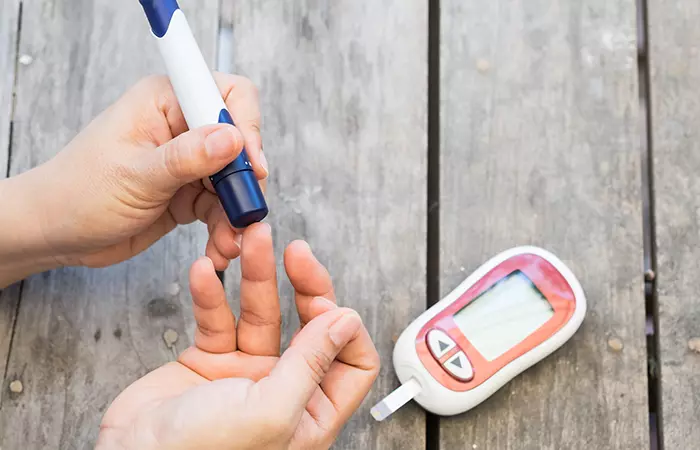
Studies suggest that chlorella may help lower blood glucose levels in healthy individuals and those with an increased risk of lifestyle diseases (7), (8). It also prevents the formation of some proteins (AGEs, or advanced glycation end products), which may attract glucose molecules in the body and worsen the symptoms of diabetes (9).
The micronutrients in spirulina and chlorella may help your body regulate the levels of hormones and macronutrients in your blood. Animal studies indicate that oral supplementation of spirulina may help lower blood sugar levels (10). Spirulina contains important phytochemicals and exhibits anti-diabetic properties that help improve blood sugar levels (11). Daily intake of 0.8 to 8 g of spirulina supplements may reduce fasting blood sugar levels in people with type 2 diabetes (12).
2. May Improve Heart Health

Daily intake of 10 g of pure chlorella tablets and 100 ml of chlorella liquid extract for 2 to 3 months may help regulate blood pressure levels and lower total and LDL cholesterol levels (2),(13).
A study published in Nutrition Journal found that a daily dose (416 mg) of chlorella improved blood lipid levels in people with elevated cholesterol (14). Another study published in 2022 found that chlorella administration reduced total and LDL cholesterol levels (though it did not show any improvement in triglyceridesi Most common type of fat molecules found in the body that circulate in the blood and give your body energy. or HDL (good) cholesterol levels) (15).
Similarly, spirulina supplementation showed a significant effect in reducing LDL (bad) cholesterol levels (16). One study conducted by the Department of Internal Medicine, Greece, found that the daily intake of 1 gram of spirulina for 3 months lowered LDL cholesterol levels by 10 percent (17).
3. May Offer Antioxidant Benefits
In a study conducted by the Department of Medical Nutrition, Korea, six-week supplementation of chlorella showed a positive impact on plasma antioxidant nutrient status and improved free radical scavenging activities in male smokers (18). Spirulina contains an antioxidant called phycocyanin that may help fight against free radicalsi Unstable molecules that build up in your cells and increase the risk of cardiovascular and age-related diseases. (19), (20).
4. May Have Detoxifying Properties
Chlorella and spirulina also act as natural detoxifying agents because of their rich antioxidant content. These supplements have become popular due to their ability to help remove toxins from our systems (21), (22). Both chlorella and spirulina can be used in higher doses for metal detoxification. But ensure to consult your doctor for the appropriate dosage.
Petrena Schell, a health and nature vlogger, spoke about how spirulina has benefited her health in her video. She said, “I actually feel like a general sense of well-being when I’m taking it maybe it’s subconscious because I know it is taking out the heavy metals and toxins and candida and radiation out of my body (i).”
While they provide a host of benefits to the body, it is important to note their side effects too. Scroll down to the next section to learn more.
Side Effects Of Chlorella And Spirulina

Intake of chlorella is generally considered safe. However, some individuals may experience side effects like nausea, stomach cramps, and abdominal discomfort (23). Chlorella may also lead to asthmai A chronic condition where airways narrow and swell, causing breathing difficulties, wheezing, and chest pain. and anaphylaxisi A potential, life-threatening reaction to an irritant or an allergen that occurs within seconds or minutes from exposure. (24).
Spirulina contains microcystins, excess consumption of which may cause liver problems (25), (26). Anecdotal evidence suggests that spirulina intake may slow down the blood clotting process. However, more studies are warranted in this regard.
Both chlorella and spirulina share similar properties and benefits. But which of the two should you include in your diet? Scroll down to know.
Chlorella Vs. Spirulina: Which One Is Healthier?
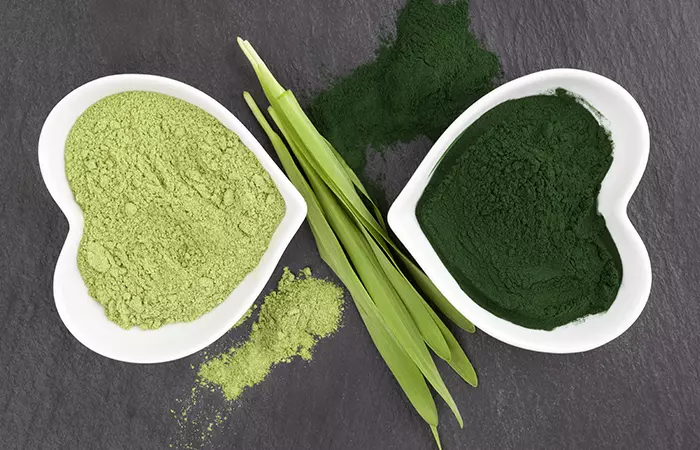
Both chlorella and spirulina contain high amounts of protein, fats, and minerals. They exhibit antioxidant and anti-inflammatory properties and act as effective detoxifying agents. While chlorella has a higher iron, omega-3, and zinc content, spirulina has a higher copper content.
Anecdotal evidence suggests that one should exercise caution while consuming these supplements due to their ability to interact with blood-thinning medications. Individuals with autoimmune diseases should avoid taking their supplements as they may worsen the situation.
Both chlorella and spirulina have essential nutrients that make them a healthy addition to one’s diet. But consult your doctor to understand which supplement suits your needs the best before incorporating it into your routine.
Wondering how much of these nutrition-rich supplements you should add to your daily diet? Find out in the next section.
How Much Spirulina And Chlorella Should You Consume Per Day?
According to research, 1-19 grams of spirulina supplementation for 0.5-6 months may positively impact your health (27). This adds up to approximately 4 teaspoons per day. However, please keep in mind that there is no official suggested dosage for spirulina. The same goes for the daily consumption of chlorella, which can be 3-10 grams per day for 2-3 months. However, it is recommended not to consume spirulina and chlorella without consulting an healthcare expert.
Should your doctor give a go-ahead, be informed that adding these ingredients to your diet can be fun and creative! Learn more in the section below.
How To Use Chlorella And Spirulina
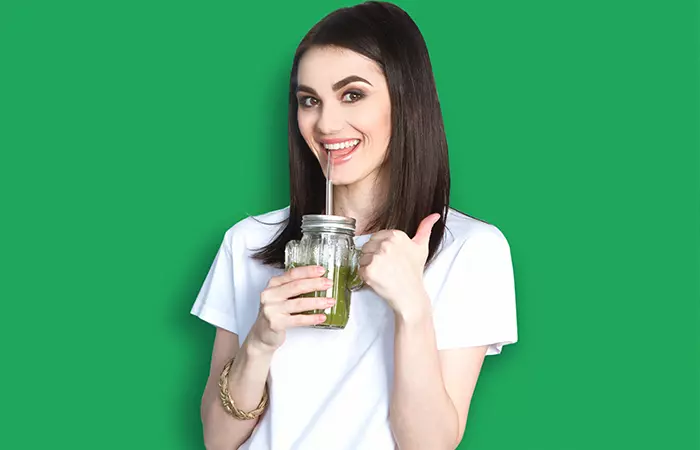
There are no recorded guidelines for the proper usage of chlorella or spirulina. Chlorella is available as powder, liquid, or tablet and can be added to your diet in the following ways.
- Add a spoonful of chlorella powder to any smoothie.
- Mix with water, juice, or yogurt.
- Add it to stir-fries, miso soups, or vinaigrette salad dressings.
- Sift a few teaspoons of chlorella powder into your preferred baking flour to make your cookies, cake, or muffins.
Spirulina is available in tablet or powder form and can be incorporated into your diet in the following ways.
- Add to any sweet smoothie to mask its sea flavor.
- Sprinkle it on salads and soups.
- Make energy balls with it.
- Combine spirulina powder with matcha green tea for a creamy breakfast option.
- Add it to a citrusy cocktail like a lemon drop.
Get the best of both worlds! You can enjoy all the unique spirulina and chlorella benefits by incorporating both of these algae into your diet.
Infographic: Major Differences Between Chlorella And Spirulina
Chlorella and spirulina are nutrient-rich supplements that may help improve blood sugar levels and heart health. However, understanding the differences between the two is key to learning their benefits and what suits you the best. We have rounded up the key differences between chlorella and spirulina in the infographic below. Check them out.

Illustration: StyleCraze Design Team
To Sum Up
The chlorella vs. spirulina debate has been around for a long time. Both supplements are highly nutritious with many health benefits. They remove toxic metals from your body and help lower blood sugar and cholesterol levels. However, people with autoimmune disorders and on blood thinners should avoid using these supplements. Consult your health care provider to understand which supplement is suitable for your needs.
Frequently Asked Questions
What is better for hair growth – chlorella or spirulina?
Anecdotal evidence suggests that spirulina is richer in protein, vitamin A, fat, and iron than chlorella. These nutrients play a key role in hair growth.
Should I take spirulina and chlorella together?
Yes, it is better if you consume spirulina and chlorella together. This combination is rich in protein and a wide variety of vitamins and minerals. Their combined detoxifying properties help remove toxins from the body (21), (28).
Why do bodybuilders take spirulina?
Spirulina is rich in protein, an essential nutrient for bodybuilders that also helps repair muscle damage after workouts (2).
Is moringa better than spirulina?
While spirulina contains more protein than moringa, the latter wins the bet when it comes to other vitamins and minerals. In fact, moringa contains twice as much fiber, vitamin A, calcium, and iron as spirulina (29).
Illustration: Chlorella Vs Spirulina - Nutrition Benefits & Side Effects
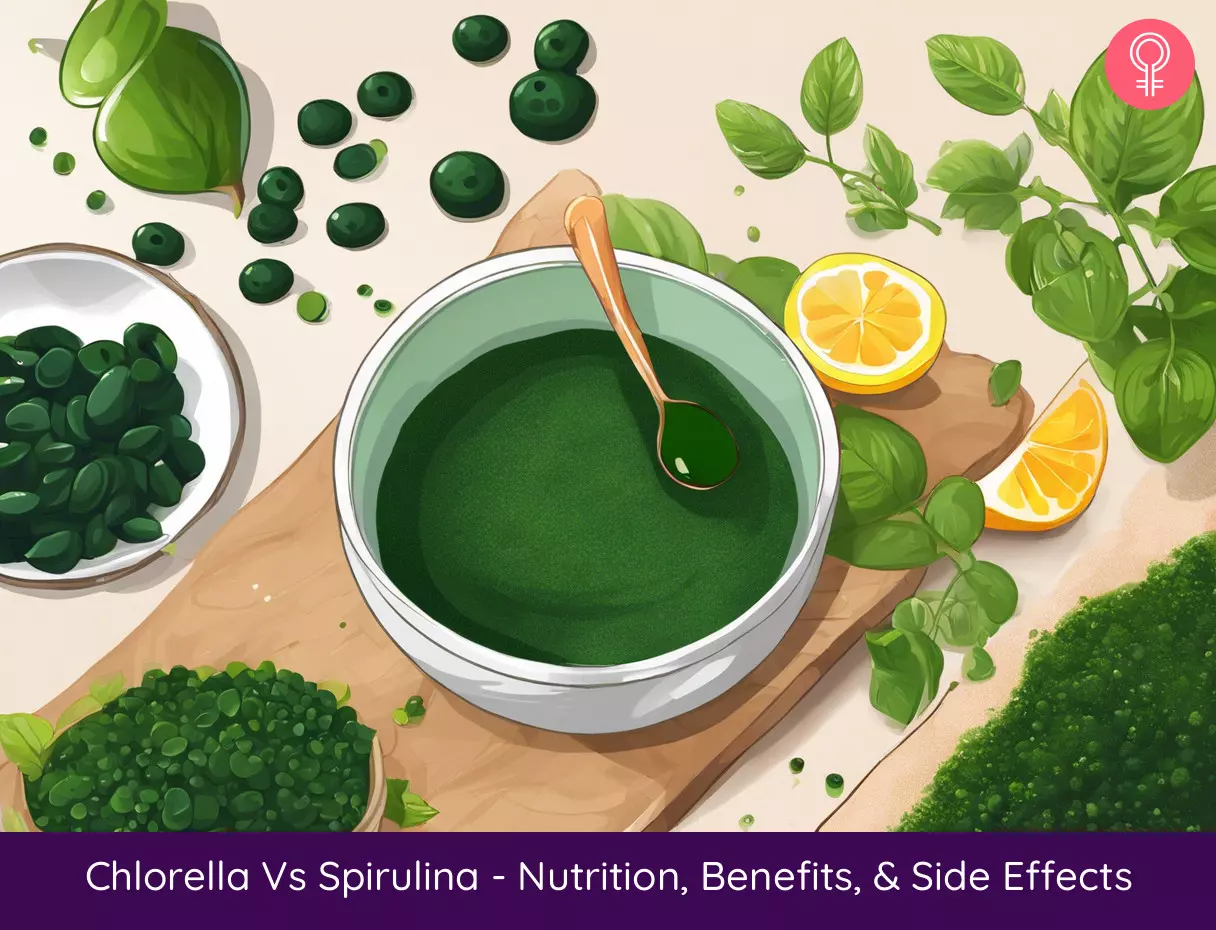
Image: Stable Diffusion/StyleCraze Design Team
Wondering about how spirulina and chlorella are different? Check out this video to understand the key differences between these superfoods, their health benefits, and how to choose the right one for your needs.
Personal Experience: Source
StyleCraze's articles are interwoven with authentic personal narratives that provide depth and resonance to our content. Below are the sources of the personal accounts referenced in this article.
i. Spirulina Benefits, My Experience & Personal Useshttps://www.youtube.com/watch?v=vTEo5pVALpE
References
Articles on StyleCraze are backed by verified information from peer-reviewed and academic research papers, reputed organizations, research institutions, and medical associations to ensure accuracy and relevance. Read our editorial policy to learn more.
- Spirulina – From growth to nutritional product: A review
https://www.sciencedirect.com/science/article/abs/pii/S0924224417302182?via%3Dihub - Seaweed, spirulina, dried
https://fdc.nal.usda.gov/fdc-app.html#/food-details/170495/nutrients - Effect of dried Chlorella vulgaris and Chlorella growth factor on growth performance, meat qualities and humoral immune responses in broiler chickens
https://www.ncbi.nlm.nih.gov/pmc/articles/PMC4908087/ - Potential of Chlorella as a Dietary Supplement to Promote Human Health
https://www.ncbi.nlm.nih.gov/pmc/articles/PMC7551956/ - Bioavailability and Safety of Nutrients from the Microalgae Chlorella vulgaris, Nannochloropsis oceanica and Phaeodactylum tricornutum in C57BL/6 Mice
https://www.ncbi.nlm.nih.gov/pmc/articles/PMC6116023/ - Trends and Technological Advancements in the Possible Food Applications of Spirulina and Their Health Benefits: A Review
https://www.ncbi.nlm.nih.gov/pmc/articles/PMC9458102/ - Chlorella vulgaris: A Multifunctional Dietary Supplement with Diverse Medicinal Properties
https://pubmed.ncbi.nlm.nih.gov/26561078/ - Nutrigenomic studies of effects of Chlorella on subjects with high-risk factors for lifestyle-related disease
https://pubmed.ncbi.nlm.nih.gov/18800884/ - Therapeutic potentials of unicellular green alga Chlorella in advanced glycation end product (AGE)-related disorders
https://pubmed.ncbi.nlm.nih.gov/15996828/ - Oral Spirulina Platensis Attenuates Hyperglycemia and Exhibits Antinociceptive Effect in Streptozotocin-Induced Diabetic Neuropathy Rat Model
https://www.ncbi.nlm.nih.gov/pmc/articles/PMC7507773/ - Effects of Spirulina platensis on insulin secretion, dipeptidyl peptidase IV activity and both carbohydrate digestion and absorption indicate potential as an adjunctive therapy for diabetes
https://www.ncbi.nlm.nih.gov/pmc/articles/PMC7547908/ - The effect of spirulina on type 2 diabetes: a systematic review and meta-analysis
https://www.ncbi.nlm.nih.gov/pmc/articles/PMC8212345/ - 13.A review of recent clinical trials of the nutritional supplement Chlorella pyrenoidosa in the treatment of fibromyalgia, hypertension, and ulcerative colitis
https://pubmed.ncbi.nlm.nih.gov/11347287/ - Impact of daily Chlorella consumption on serum lipid and carotenoid profiles in mildly hypercholesterolemic adults: a double-blinded, randomized, placebo-controlled study
https://nutritionj.biomedcentral.com/articles/10.1186/1475-2891-13-57 - Effect of supplementation with Chlorella vulgaris on lipid profile in adults: A systematic review and dose-response meta-analysis of randomized controlled trials
https://pubmed.ncbi.nlm.nih.gov/35331862/ - A systematic review and meta-analysis of the impact of Spirulina supplementation on plasma lipid concentrations
https://pubmed.ncbi.nlm.nih.gov/26433766/ - The hypolipidaemic effects of Spirulina (Arthrospira platensis) supplementation in a Cretan population: a prospective study
https://pubmed.ncbi.nlm.nih.gov/23754631/ - Six-week supplementation with Chlorella has favorable impact on antioxidant status in Korean male smokers
https://pubmed.ncbi.nlm.nih.gov/19660910/ - C-Phycocyanin-a novel protein from Spirulina platensis- In vivo toxicity, antioxidant and immunomodulatory studies
https://www.ncbi.nlm.nih.gov/pmc/articles/PMC7938138/ - Effect of Spirulina Intervention on Oxidative Stress, Antioxidant Status, and Lipid Profile in Chronic Obstructive Pulmonary Disease Patients
https://www.ncbi.nlm.nih.gov/pmc/articles/PMC4320919/ - Chelation: Harnessing and Enhancing Heavy Metal Detoxification—A Review
https://www.hindawi.com/journals/tswj/2013/219840/ - The Role of Spirulina (Arthrospira) in the Mitigation of Heavy-Metal Toxicity: An Appraisal
https://pubmed.ncbi.nlm.nih.gov/32749124/ - 23.Safety and immunoenhancing effect of a Chlorella-derived dietary supplement in healthy adults undergoing influenza vaccination: randomized, double-blind, placebo-controlled trial
https://www.ncbi.nlm.nih.gov/pmc/articles/PMC164975/ - Chlorella
https://pubmed.ncbi.nlm.nih.gov/30000882/ - Detection of the hepatotoxic microcystins in 36 kinds of cyanobacteria Spirulina food products in China
https://pubmed.ncbi.nlm.nih.gov/18569007/ - Update on the adverse effects of microcystins on the liver
https://pubmed.ncbi.nlm.nih.gov/33617868/ - The effects of Spirulina supplementation on metabolic syndrome components, its liver manifestation and related inflammatory markers: A systematic review
https://pubmed.ncbi.nlm.nih.gov/30670232/ - Spirulina supplementation prevents exercise-induced lipid peroxidation, inflammation and skeletal muscle damage in elite rugby players
https://pubmed.ncbi.nlm.nih.gov/35394687/ - Drumstick leaves, raw
https://fdc.nal.usda.gov/fdc-app.html#/food-details/168416/nutrients
Read full bio of Olesya Wilson
Read full bio of Sindhu Koganti
Read full bio of Ravi Teja Tadimalla
Read full bio of Himanshi Mahajan






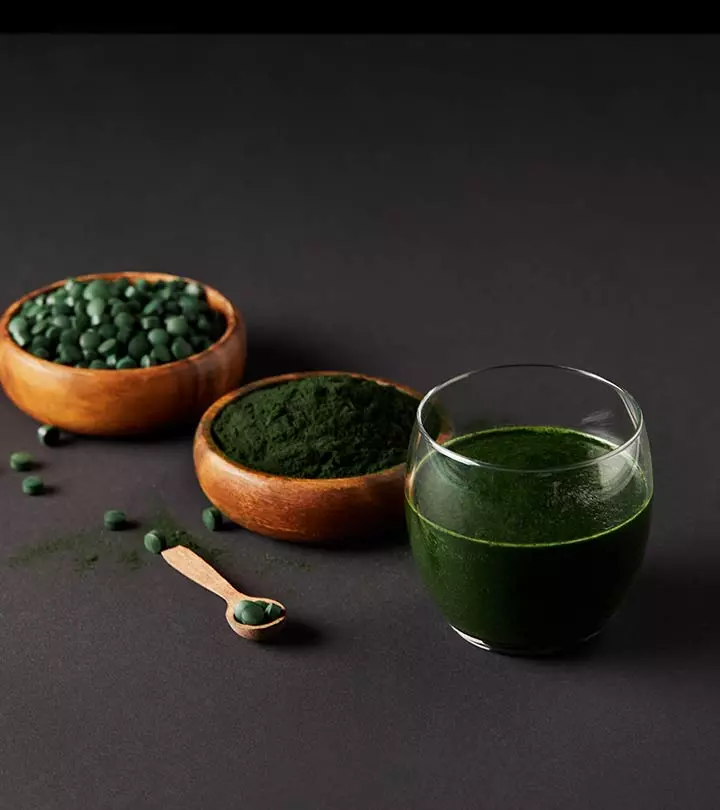
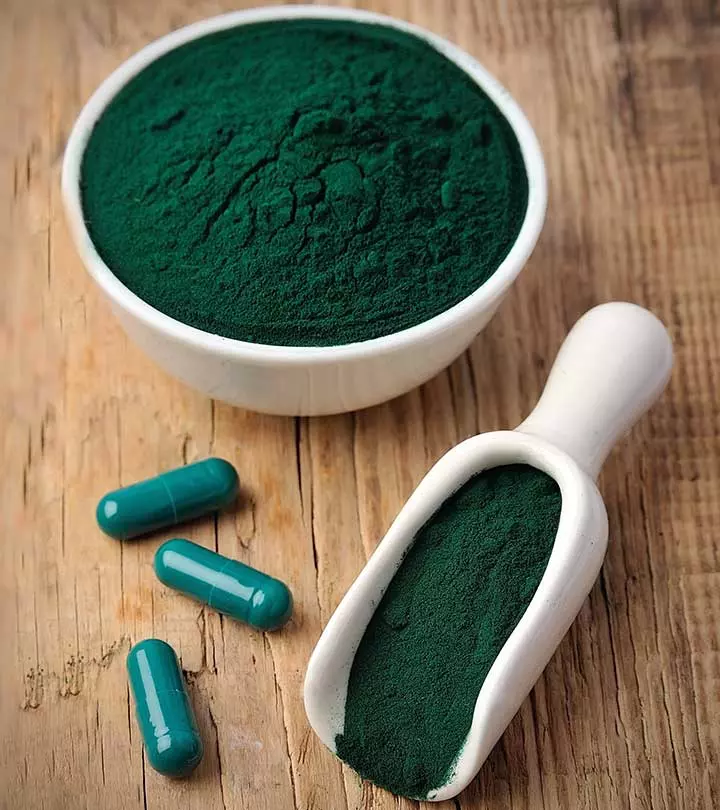
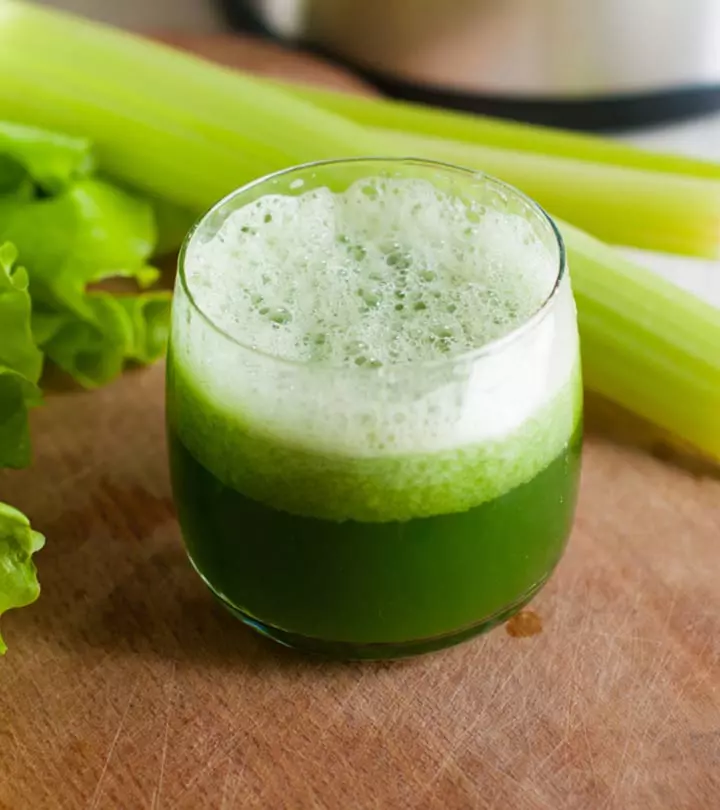
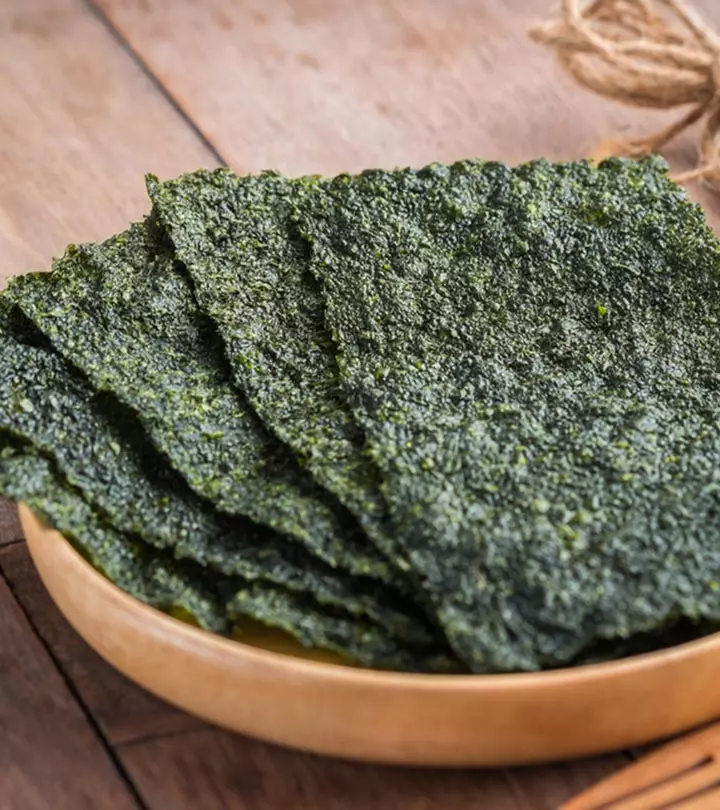

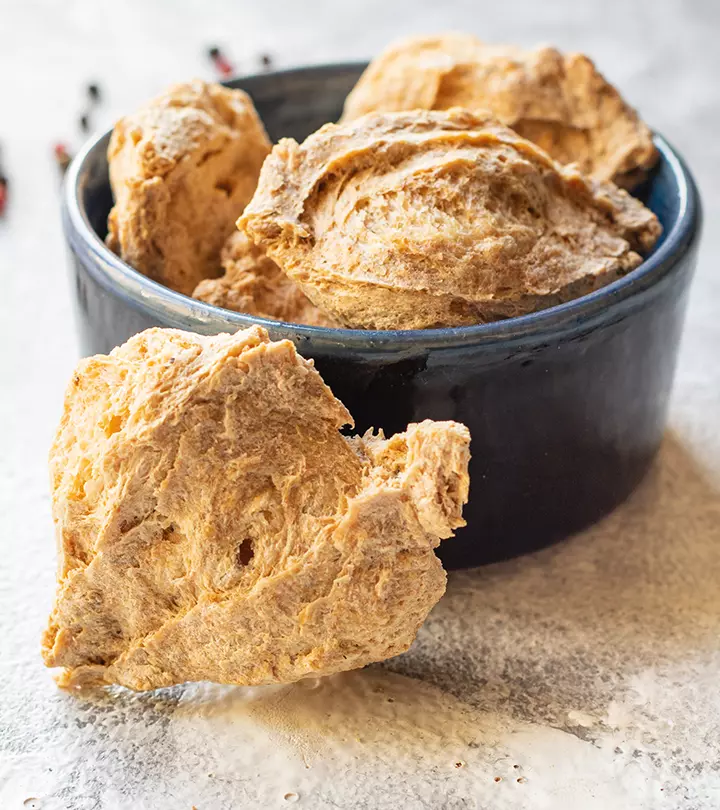

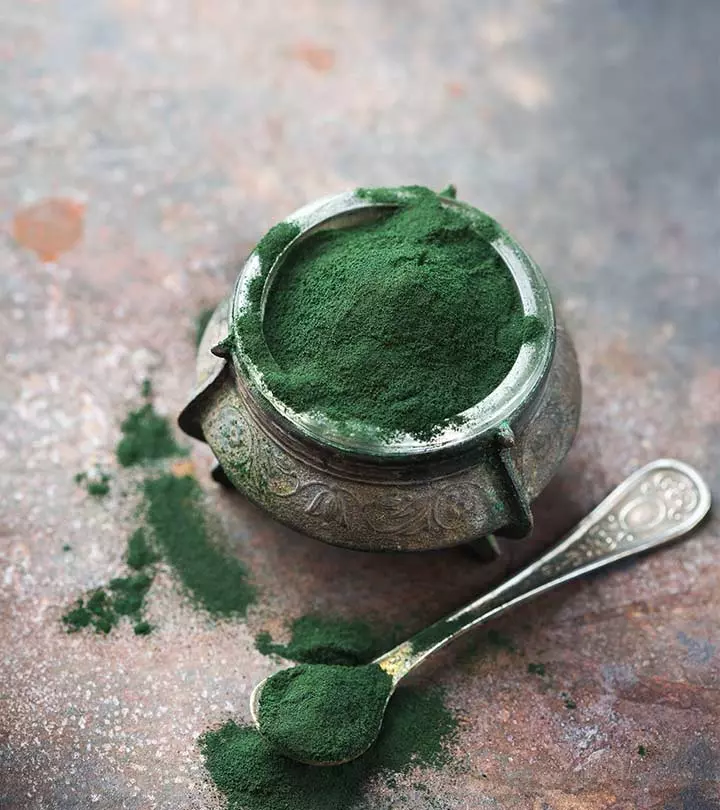
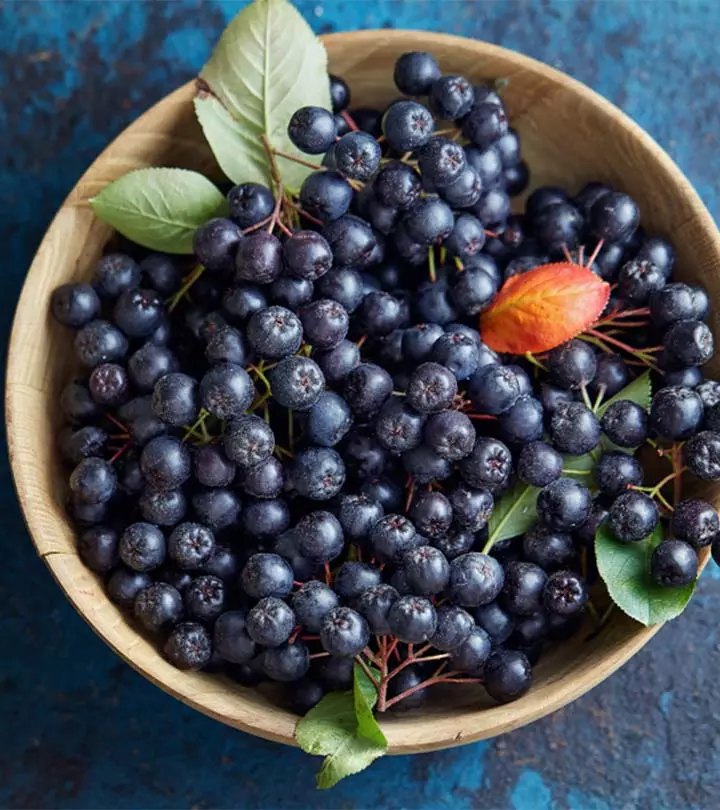

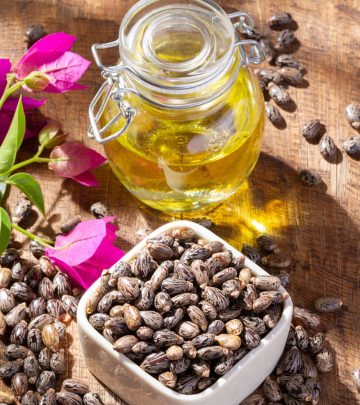
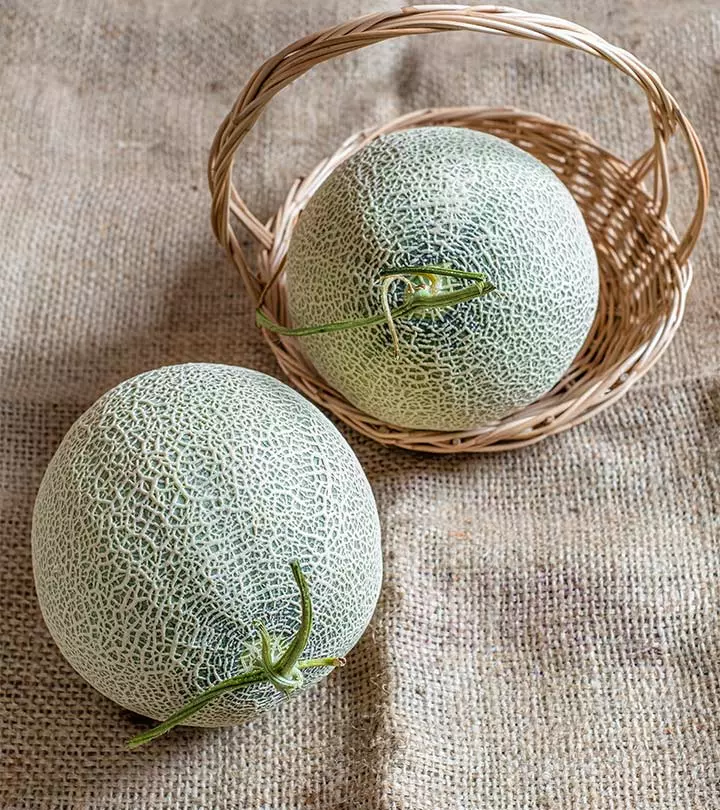


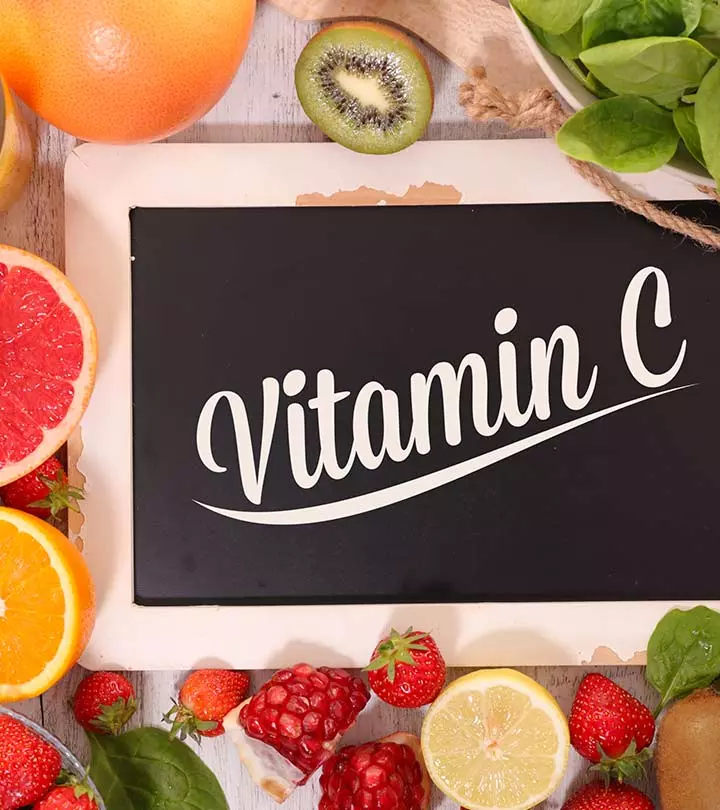


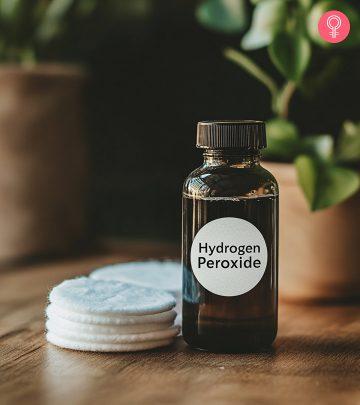


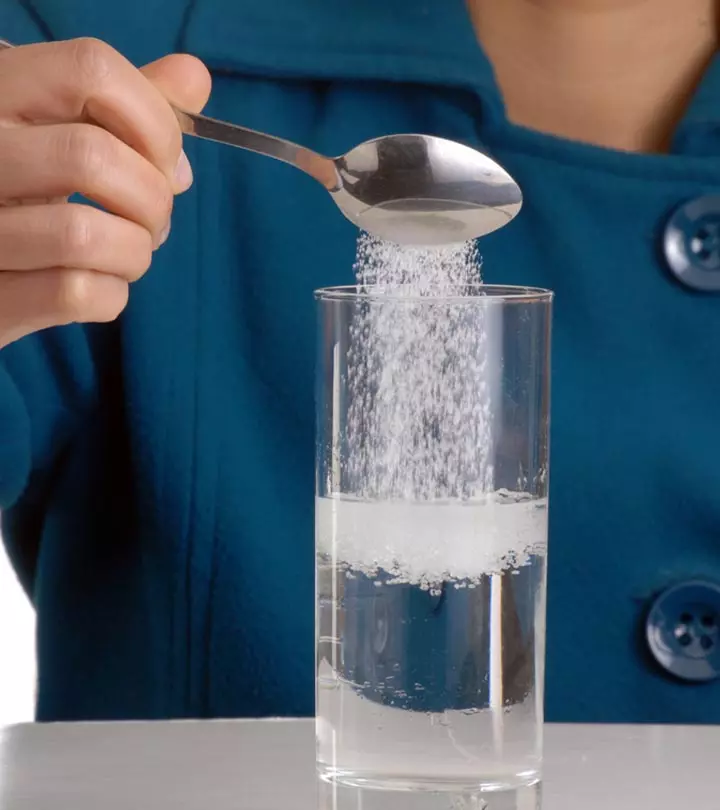
Community Experiences
Join the conversation and become a part of our empowering community! Share your stories, experiences, and insights to connect with other beauty, lifestyle, and health enthusiasts.